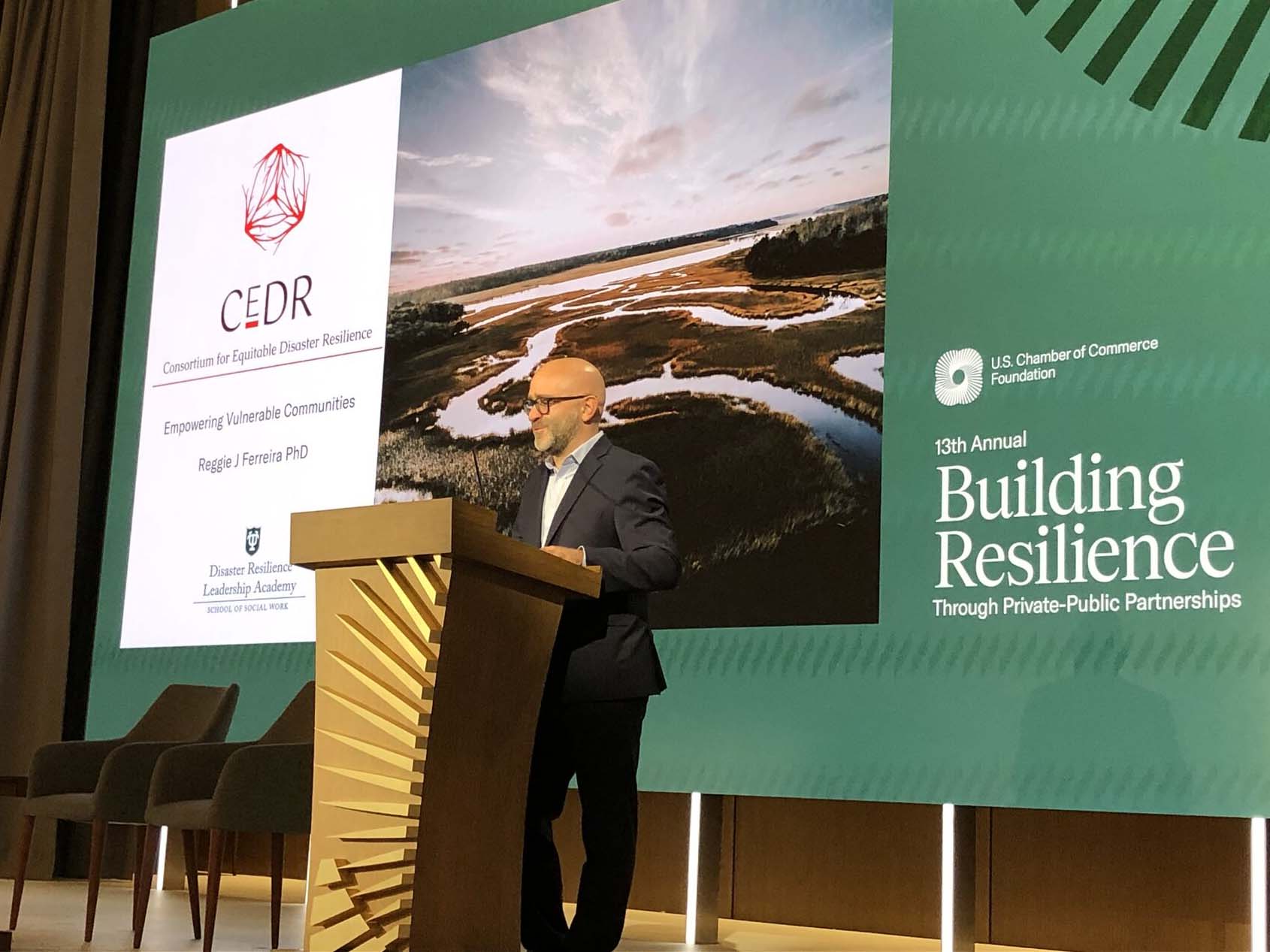Walmart Foundation grant to fund Tulane's research on improving disaster assistance programs
September 23, 2024
Stephanie Holden Reggie Ferreira, PhD, program director for the Disaster Resilience Leadership Academy has received a new grant from the Walmart Foundation to assist disaster management systems in helping disaster survivors recover more effectively and quickly.Tulane University School of Social Work’s Disaster Resilience Leadership Academy (DRLA) has received a $550,000 grant from the Walmart Foundation to assist disaster management systems in helping disaster survivors recover more effectively and quickly.
The grant will fund research within DRLA’s Consortium for Equitable Disaster Resilience (CEDR) to collaboratively enhance the landscape for post-disaster assistance, including FEMA's Individuals and Households Program (IHP), a program that helps millions of individuals every year recover from disasters. Together with Walmart and other partners, CEDR aims to identify what is working, and amplify that, to improve the nation’s response and resilience toward future disasters.
“We're seeing a significant increase in disasters, with the impacts becoming more intense and severe. Several historically marginalized communities are already at a deficit, and the compounding impacts make it even harder to recover from climate and disaster impacts,” said Regardt (Reggie) Ferreira, PhD, DRLA and CEDR program director. “Providing assistance and resources to individuals and households in a more efficient way will speed up the recovery process and increase resilience.”
In 2022, the Walmart Foundation selected CEDR as a grant recipient as part of its push to fund organizations helping local government leaders and community-led organizations in the Gulf Coast prepare their communities for disasters.
As part of that initial grant, CEDR published a report earlier this year identifying significant barriers that marginalized communities face in accessing disaster recovery resources and finances in the United States. The report introduces the concept of a "social stratification sieve" where delays in aid delivery propel those with resources into recovery while pushing those without into downward spirals of loss.
The new grant will fuel further research exploring viable solutions that could be incorporated to make recovery outcomes better for all.
“Everybody's pointing out problems, but few are offering solutions, at least not operable ones. We hope to blaze a trail for a new wave of solution-focused research that can help produce operable solutions rather than continue to identify the same old barriers we’ve known about for 25 years,” said Timothy Davidson, CEDR program coordinator.
Ferreira and Davidson will use a collaborative and evidence-based method called group concept mapping in the research to gather input from stakeholders within the IHP system and aid recipients. Davidson hopes this research's success will show scholars that their studies will have greater impacts if they focus on offering tangible solutions rather than just identifying problems.
“Group concept mapping has the incredible power to offer operable, evidence-based recommendations about how to improve a program. Functionally, it can identify the biggest change levers, ensuring that efforts to bring about change can be focused on areas that would improve program outcomes the most for those who have been historically marginalized,” Davidson said.
At the conclusion of the grant, CEDR will provide a list of tangible recommendations for changes that could improve the process of receiving assistance for millions of disaster survivors every year, functionally creating a faster, less expensive, more navigable path to giving and receiving aid.
“As researchers, we need to lean into solving these complex problems that have plagued disaster recovery programs for more than a quarter century, and the starting point is taking that first step on the collaborative solutions-focused road that is far less traveled,” Davidson said.

